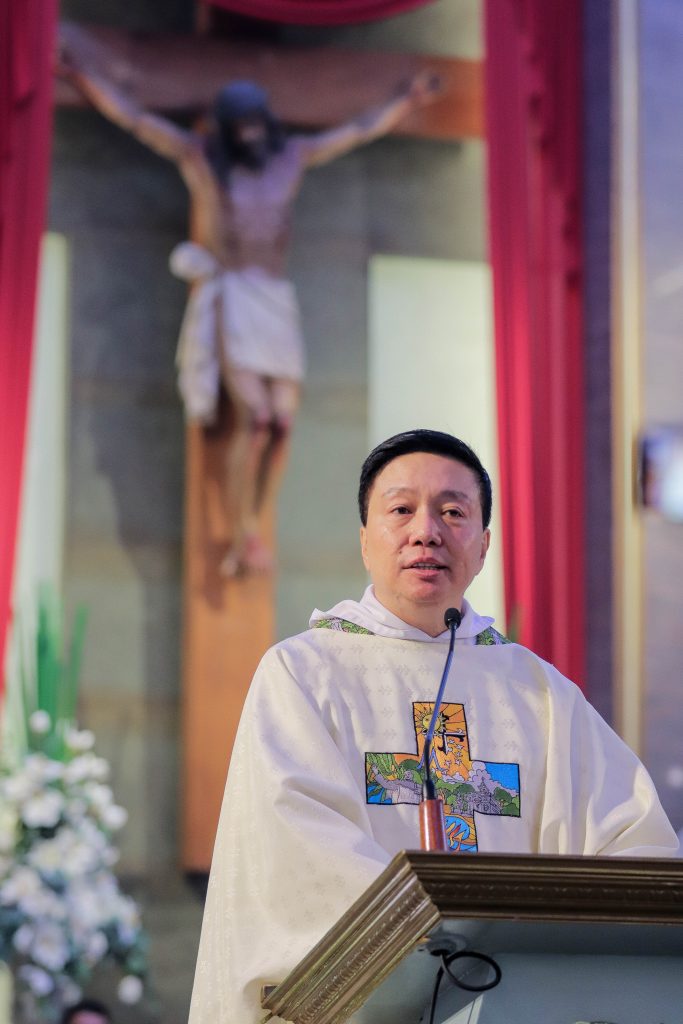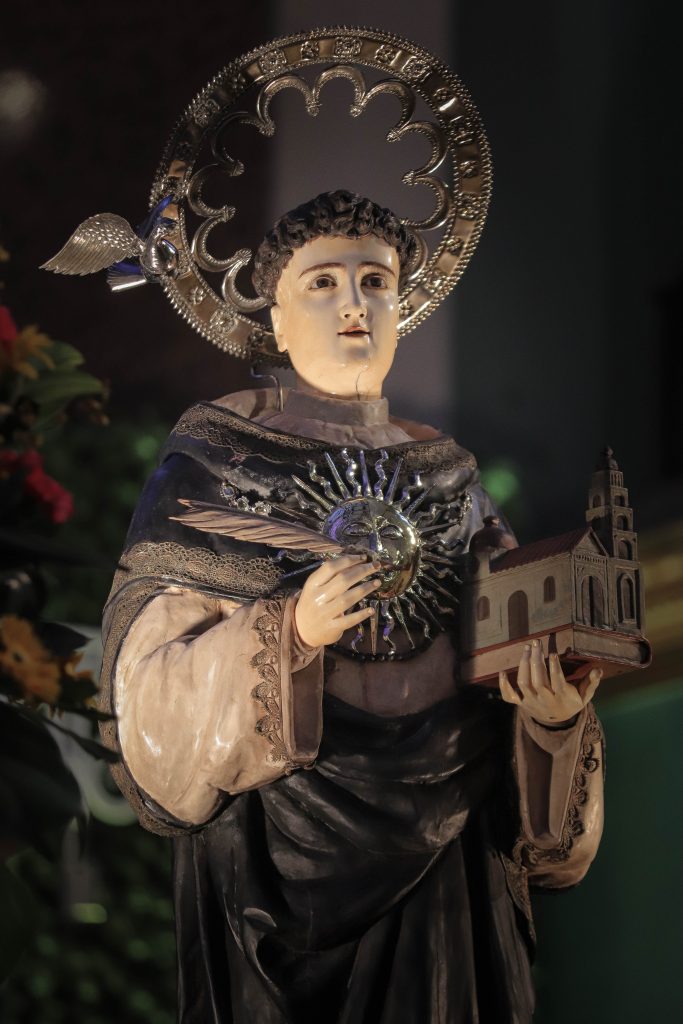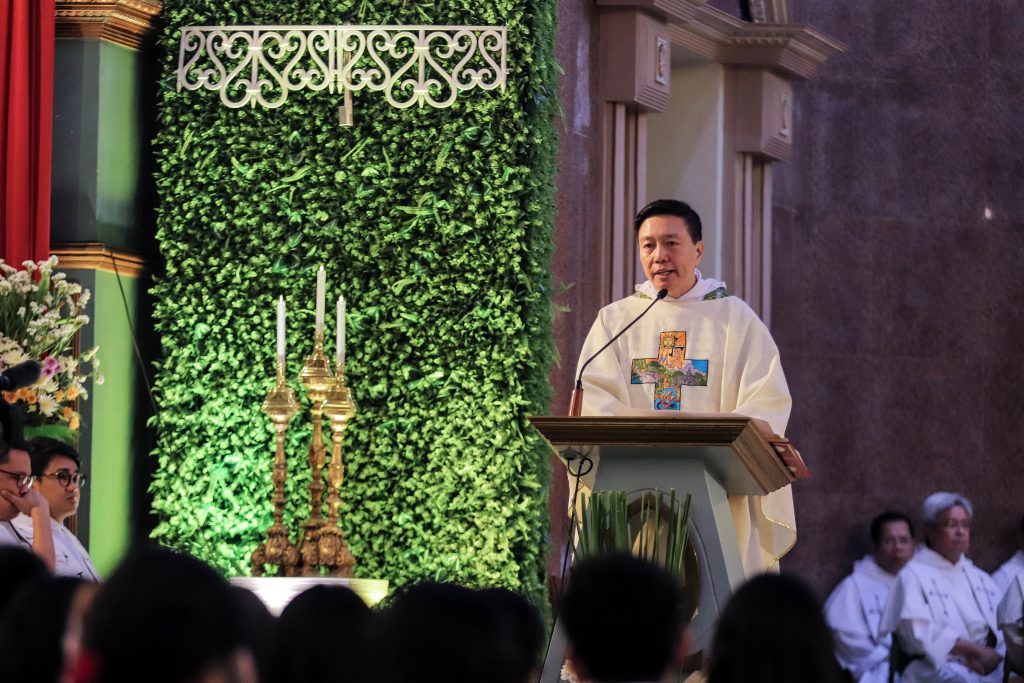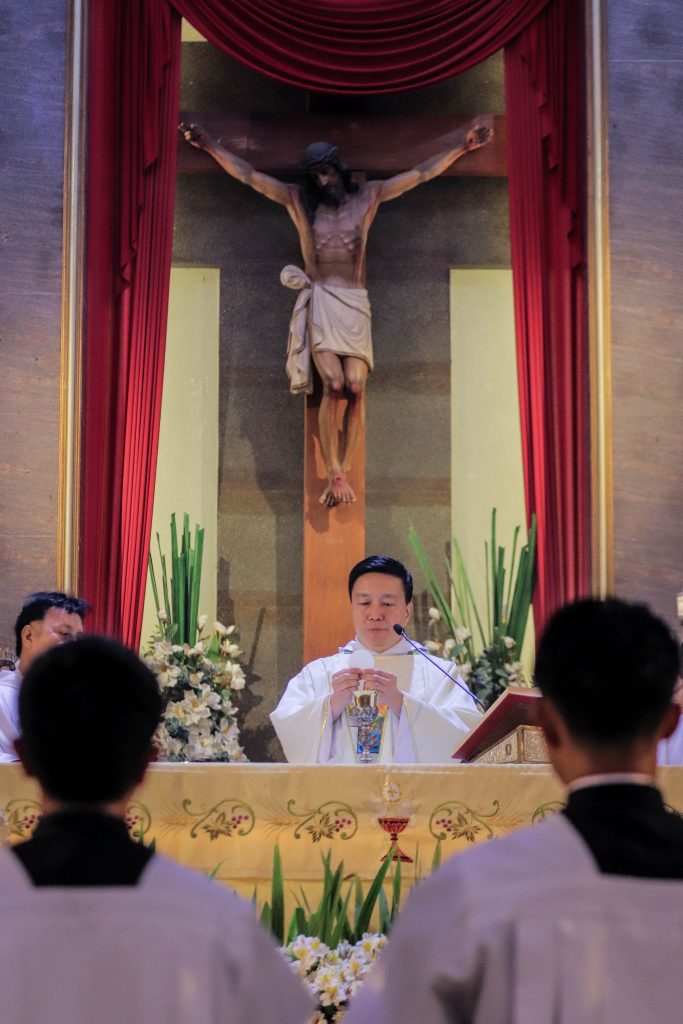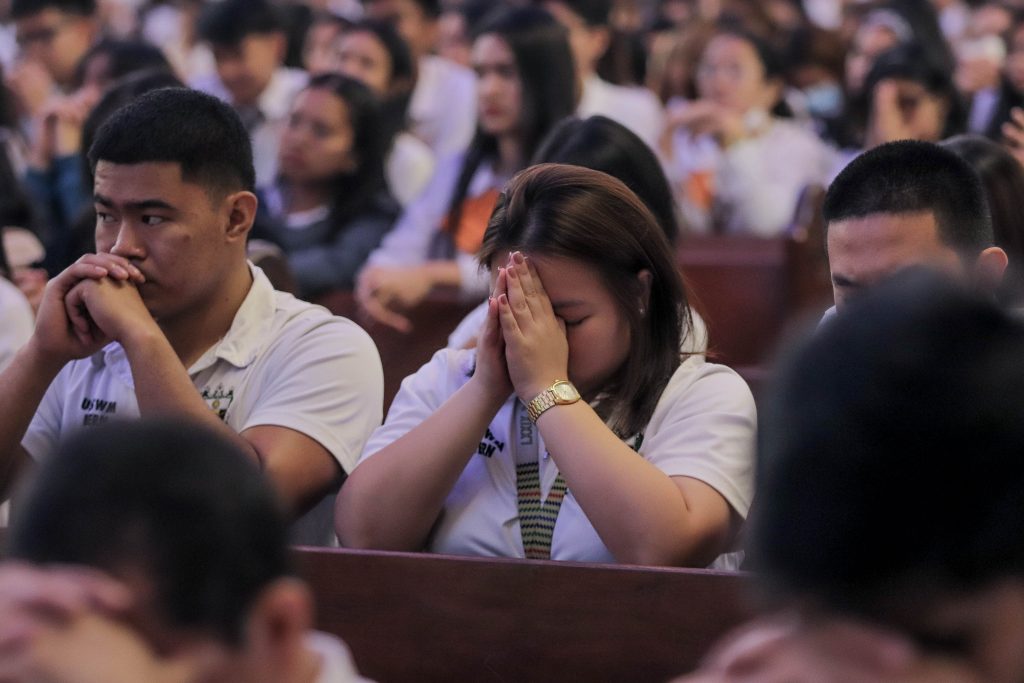On January 27, 2020, the University of Santo Tomas held a Eucharistic Celebration in honor of the Feast of its patron, Saint Thomas Aquinas. The Concelebrated Mass was led by Rev fr. Richard G. Ang, O.P., PhD, Acting Rector and concurrent Vice-Rector, and the Dominican community in the Priory of Saint Thomas Aquinas.
A collection of hymns and life lessons
In his homily, Acting Rector fr. Richard G. Ang, O.P., PhD recalled the contest of hymns that Thomas won, which earned him the symbol of the sun on his chest. “While today, Thomas Aquinas is associated with the highest form of scholastic thinking than lyric poetry, let us not forget that…he was an equally consummate creative composer of Eucharistic hymns whose momentum inspired several artist to set his lyrics into beautiful music,” said fr. Ang.
Thomas worked on five famous hymns, namely, Pange Lingua, Sacris Solemniis, Verbum Supernum, Lauda Sion, and Adoro Te Devote. According to fr. Ang, the ability of Thomas to compose such beautiful hymns because of his deep devotion to the Eucharist. Quoting a missionary, the hymns are considered “an enriching food for the thought.”
Gratitude
In the hymn Pange Lingua, the emphasis was on being thankful for the gift of presence. Emphasizing that thankfulness and gratitude go hand in hand, the Acting Rector called on the community to give heartfelt appreciation and affirmation when they are due. Gratitude, fr. Ang said, is an affirmation of blessings received, which when acknowledged more, will multiply even more.
Faith
The hymn Adoro Te Devote, meanwhile, talks about faith in the presence of Christ in the Eucharist. “We can only be extravagant in our response to God if only we have enough faith.”
Relating the call to be faithful to the present times, fr. Ang, concurrently the Dean of the Faculty of Philosophy, acknowledged that: “Our time may be an age of disbelief. In the Western world, many people have lost their faith, in one way or another. In the country, some, including public figures and maybe some young people, have begun to question our beliefs, our values. Beliefs they find too good to be true, values they find too outdated to be relevant. This is nothing new, though.”
Faced with these vicissitudes, however, the Acting Rector asked: “If we stop standing for our beliefs, if we stop standing by our ideals, then we begin losing our Catholic identity. At kapag nawala na ang ating pagkakakilanlan, ano na tayo? Sino na tayo bilang isang komunidad?”
Need for a sense of wonder
Reiterating Thomas’s amazement at how an all-powerful lends Himself to become food for His followers, the hymn Sacris Solemniis echoes the author’s sense of wonder, which is an attitude found in many young people: “The Gospel tells us that the Kingdom of Heaven belongs to those who are childlike. Then, let us not forget how to be one. By doing so, we are enabling ourselves to be lifelong learners.”
Spiritual food
The Acting Rector likewise mentioned that while food provides sustenance for the body, one’s faith sustains us spiritually. “The Eucharist is spiritual food for pilgrims like. In this hymn entitled ‘Lauda Sion,’ Thomas tells us that the Eucharist is the bread of life.” Partakig of the Eucharist on a regular basis changes people: “We become more like Christ in terms of feeling, thinking, and acting.”
Closing his homily, the Acting Rector expressed his wish for the Thomasian community: “Naway matuto tayong magpasalamat, kapasidad na mamangha, at magbago (May we learn how to express gratitude, have a sense of wonder, and transform).”



